Iran Nuclear Negotiations Resume, Breakthrough Unlikely
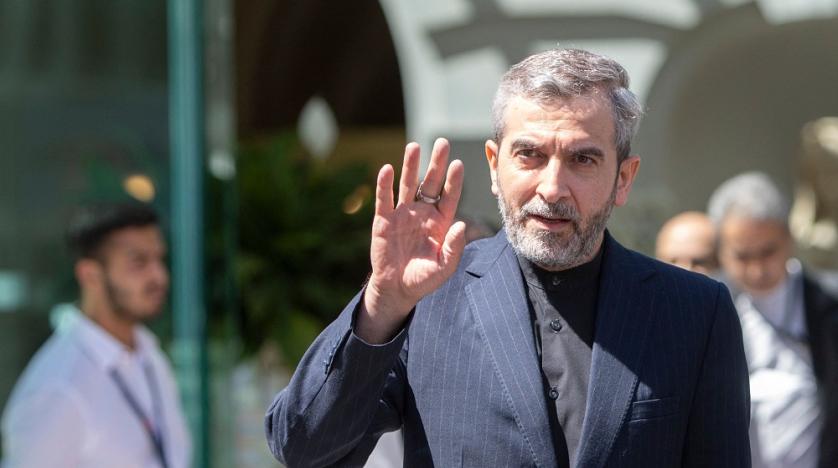
Asharq Al-Awsat
Indirect talks between Tehran and Washington resumed in Vienna with a meeting between Iran's chief nuclear negotiator and the EU's Enrique Mora, who coordinates the talks aimed at salvaging a 2015 nuclear deal, Iranian state media reported on Thursday.
Both Tehran and Washington have played down the prospect of a breakthrough in this round of talks, while the European Union's foreign policy chief Josep Borrell has warned there is no room left for further major compromises.
As Iran refuses to hold direct talks with the United States, Mora will shuttle between Ali Bagheri Kani and US Special Envoy for Iran Rob Malley, who tweeted on Wednesday he was heading to Vienna with his expectations "in check."
Signaling little flexibility to resolve remaining thorny issues, Bagheri Kani put the onus on the White House to compromise, saying in a tweet the United States should "show maturity & act responsibly."
White House national security spokesperson John Kirby said the negotiations "are pretty much complete at this point."
"We're not going to wait forever for Iran to take the deal. There's a deal on the table. They ought to take it," he told reporters in Washington on Thursday. "Time does appear to be getting very short in terms of being able to get to a deal."
Mora met Thursday with Russian Ambassador Mikhail Ulyanov, who has represented Moscow's interests in the talks. Ulyanov also separately met with Bagheri Kani.
"As always we had a frank, pragmatic and constructive exchange of views on ways and means of overcoming the last outstanding issues," Ulyanov wrote on Twitter.
Little remains of the 2015 deal, which lifted sanctions against Tehran in exchange for restrictions on its nuclear program. But then-President Donald Trump ditched the deal in 2018 and reimposed harsh sanctions.
In response, Tehran breached the deal in several ways including by rebuilding stocks of enriched uranium.
As of the last public International Atomic Energy Agency (IAEA) count, Iran has a stockpile of some 3,800 kilograms (8,370 pounds) of enriched uranium. More worrying for nonproliferation experts, Iran now enriches uranium up to 60% purity — a level it had never reached before. That is a short, technical step away from weapons-grade levels of 90%.
Experts warn Iran has enough 60% enriched uranium to reprocess into fuel for at least one bomb. However, Iran still would need to design a bomb and a delivery system for it, likely a monthslong project.
After 11 months of indirect talks in Vienna between Tehran and President Joe Biden's administration the broad outline of a revived nuclear deal was essentially agreed in March.
But talks then broke down, chiefly because of Tehran’s demand that Washington remove its Revolutionary Guards (IRGC) from a US terrorism list and the US refusal to do so.
Through its state-run IRNA news agency, Tehran denied that it had abandoned its effort to get America to delist the Guards.
IRNA also quoted Iran's civilian nuclear chief as saying turned-off surveillance cameras of the International Atomic Energy Agency would be switched back on only if the West abandons an effort to investigate manmade traces of uranium found at previously undisclosed sites in the country.
Those positions could doom the talks.
Iranian officials have been trying to offer optimistic assessments of the negotiations while blaming the US for the deadlock. They may be worried that a collapse of the talks could send the country's rial currency plunging to new lows.
Iran maintains its program is for peaceful purposes, though its officials increasingly are discussing the country's ability to build a nuclear bomb if it chose — previously a taboo topic there.
To overcome the impasse, Borrell in July proposed a new draft text, which two Iranian officials said Tehran "was not happy" with it.
"Iran has shown enough flexibility. Now it is up to Biden to make a decision. We have our own suggestions that will be discussed in the Vienna talks, such as lifting sanctions on the Guards gradually," a senior Iranian official told Reuters.
Other points of contention include Tehran's demand that Washington provide guarantees that no US president would abandon the deal as Trump did. But Biden cannot promise this because the 2015 pact is a non-binding political understanding, not a legally-binding treaty.
"If they want to revive the pact, Washington should secure Iran's economic benefits and not only until the end of Biden's term," said a second Iranian official.
The nuclear talks were at the heart of discussions held by US Secretary of State Antony Blinken in Cambodia where he is taking part in the ASEAN summit.
He met Qatar's foreign minister Mohammed Abdulrahman Al Thani and Borrell to talk about Iran.
Blinken commended Borrell’s efforts to achieve a mutual return to compliance with the nuclear deal, and he noted that the United States remains sincere and steadfast in our desire to do so, said State Department spokesperson Ned Price.
Meanwhile Thursday, UN inspectors at the IAEA said that they had verified that Iran had begun feeding uranium gas into two IR-1 cascades previously unused at its underground Natanz facility. Those cascades will enrich uranium up to 5%.
The IAEA inspectors also verified that Iran had completed installation of three advanced IR-6 cascades at the plant, each comprising up to 176 centrifuges. The IAEA said those cascades had yet to be fed uranium. Iran also told the IAEA it planned to installed six more IR-2M cascades in a new operating unit at Natanz, inspectors said.
Latest News
-
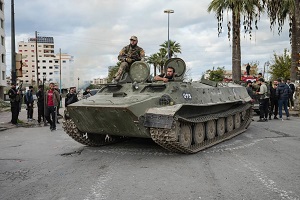 Syrian Army Enters Latakia, Tartus after Attacks by Regime Remnants
Syrian Army Enters Latakia, Tartus after Attacks by Regime Remnants
-
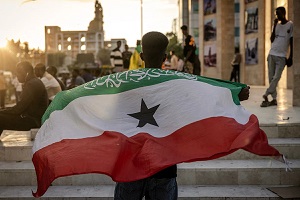 Jordan, Arab, Islamic countries reject Israel’s recognition of Somaliland
Jordan, Arab, Islamic countries reject Israel’s recognition of Somaliland
-
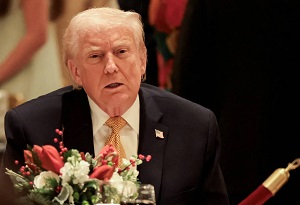 Trump Says Had 'Productive' Call with Putin Ahead of Zelensky Meeting
Trump Says Had 'Productive' Call with Putin Ahead of Zelensky Meeting
-
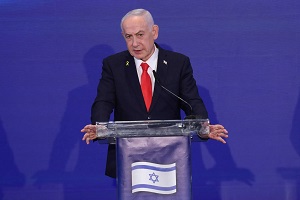 Netanyahu to Meet Trump in US on Monday for Talks on Iran, Gaza, Hezbollah, Syria
Netanyahu to Meet Trump in US on Monday for Talks on Iran, Gaza, Hezbollah, Syria
-
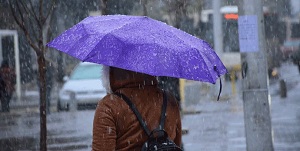 JMD forecasts heavy rain, brisk winds, low visibility
JMD forecasts heavy rain, brisk winds, low visibility